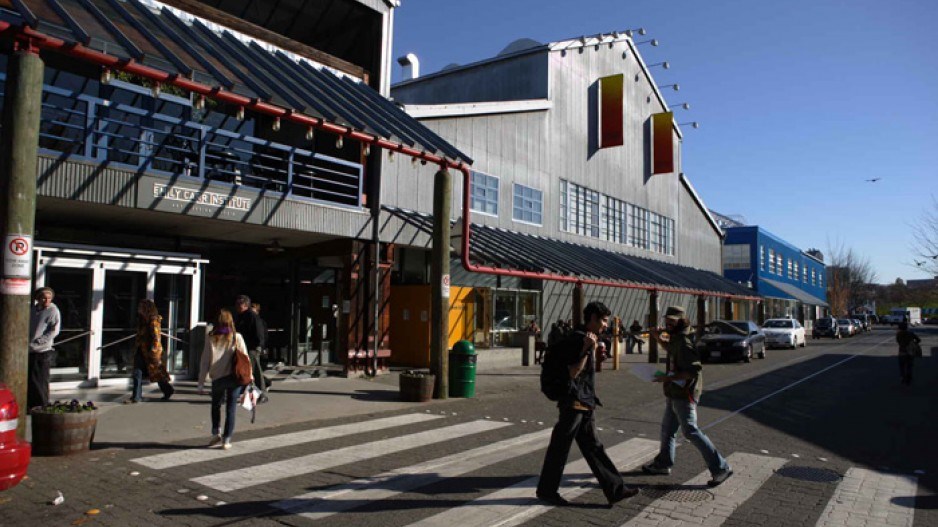The theory goes that people who are left-brain dominant are more logical and prone to the sciences, while those who are right-brain dominant are more intuitive and artsy.
So how do you match both sides of the brain in the workforce?
Startup accelerator Highline is looking to make that connection with a program pairing design students at Emily Carr University (ECU) with early stage tech companies.
Highline’s Vancouver-based predecessor, GrowLab, originally launched a pilot program in fall 2013 and spring 2014. But with the merger of GrowLab and Toronto’s Extreme Startups in the summer of 2014, companies based on the West Coast and in Central Canada have access to office space at Highline’s respective campuses in both regions.
That also means some Toronto entrepreneurs are being exposed to ECU design students for the first time, Highline CEO Marcus Daniels told Business In Vancouver.
“We learned historically what worked and what didn’t work in the first couple of iterations and now we’re looking at ways at how to innovate at a more national scale,” he said.
“We’re opening up this proposition to the whole entire portfolio (of startups at Highline), not just a small group of companies. So we’re getting a broader group of talented designs students, better matching between the aspirational designer and the fledgling startup.”
Students involved with the previous pilot program created icons and data visualizations for Vancouver’s BitLit, designed the creation tool for Cognilab and helped overhaul email campaigns for Spacelist.
Although Highline wouldn’t reveal which companies are involved in this latest phase of the program, Daniels said five design students have been matched up with the right startup based on how well they fit together.
“The last thing we want to have in these sorts of relationships is a designer coming in, not getting much experience working on some real elementary project,” he said, adding it also does not benefit the startup if managers have to handhold the designers.
Daniels said there is also the possibility students will end up with permanent jobs on a startup’s design team.
Kate Armstrong, director of ECU’s Social+Interactive Media Centre, is providing students with feedback on a weekly basis.
She said the program would have a significant impact on how designers “get plugged in to the startup ecosystem.”
In late February, Vancouver-based Lighthouse Labs announced it would partner with Highline to open a Toronto location for its coding boot camp in March.
It’s the first time a Canadian coding bootcamp has made such a partnership deal with an accelerator.
“If you think of what makes our companies in the portfolio move faster, now you have two solid relationships (at Highline) with leading entities in design and web development talent,” Daniels said.
“As the synergies happen between the three entities there, there’s a lot more that can be co-created as we map this out further.”




